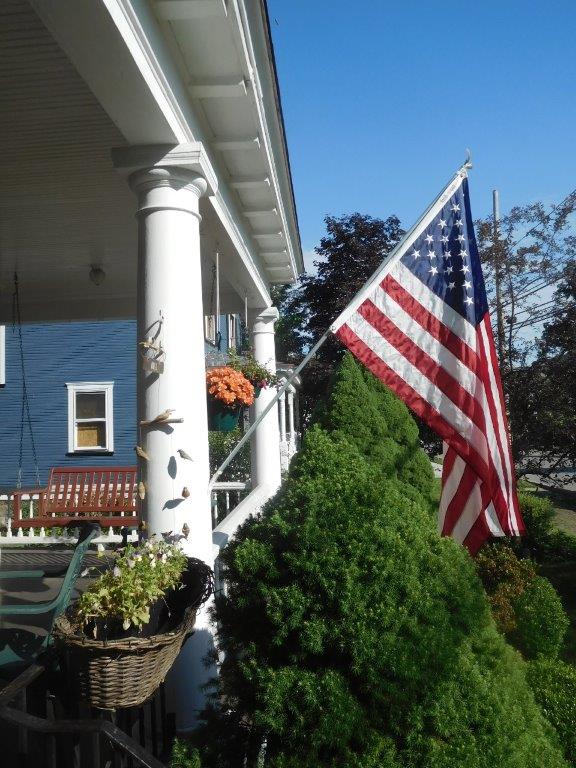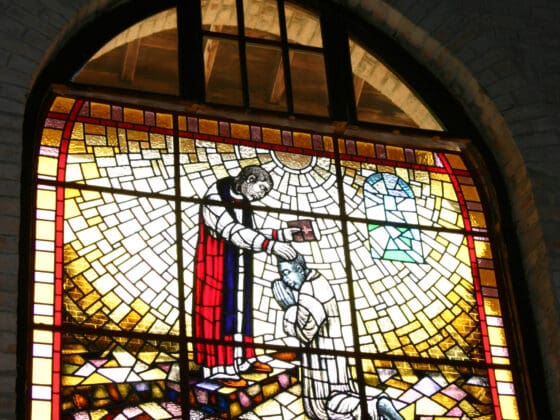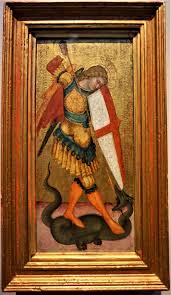NOTE: I preached this meditation on Sunday, July 4, 2021 at my local church in Pittsburgh. It is now available in my recent book: Millennial People, Boomer Priest: My Year Eldering a Young Congregation. It seems appropriate to our present situation in 2024, which resembles, eerily, the year 1968.
LESSONS: Psalm 67; Deuteronomy 32:1-9; Ephesians 4:15-27
This morning I put out the flag on our porch, which I do on national holidays. But before I did, I paused. Why? First, because showing the flag seems a provocative act at present, and second, because this year Independence Day falls on Sunday, the Lord’s Day. But I went ahead and thought this coincidence in the secular and sacred calendars might be an opportunity to say why.
Let me take you back to 1968, long before most of you were born. My wife Peggy and I graduated from Cornell University on June 1, 1968. The commencement speaker was John W. Gardner. Gardner was Secretary of Health, Education and Welfare and had helped implement much of President Lyndon Johnson’s Great Society agenda. He went on to found “Common Cause,” an advocacy group for citizen participation in government, for which he was attacked from both the Right and the Left.
Gardner’s speech at Cornell was widely reported at the time, particularly for his warning against “uncritical lovers and unloving critics” of America. Gardner imagined 23rd century historians looking back from two hundred years on this time:
They pointed out that twentieth century institutions were caught in savage crossfire between uncritical lovers and unloving critics. On the one side, those who loved their institutions tended to smother them in an embrace of death, loving their rigidities more than their promise, shielding them from life-giving criticism. On the other side, there arose a breed of critics without love, skilled in demolition but untutored in the arts by which human institutions are nurtured and strengthened and made to flourish. Between the two, the institutions perished.
The twenty third century scholars understood that where human institutions were concerned, love without criticism brings stagnation, and criticism without love brings destruction. And they emphasized that the swifter the pace of change, the more lovingly men had to care for and criticize their institutions to keep them intact through the turbulent passages.
1968 was indeed a turbulent year. Vietnam protests had come to a head, with the burning of flags and draft cards, which led to the withdrawal of Lyndon Johnson from the Presidential race on March 31st. Five days later, on April 4th, Martin Luther King, Jr. was assassinated in Memphis, followed by destructive riots in many American cities, including Pittsburgh. Whole blocks in Washington, DC came to look like a bombed-out war zone and remained so for years. On June 5, four days after Gardner’s speech at Cornell, Robert Kennedy was assassinated. Kennedy was a frontrunner in the Presidential race and considered a champion of human rights. In August, violent clashes of protesters and police broke out at the Democratic Convention, which led in November to the election of Richard Nixon, who ran on a platform of law and order and patriotism.
In 1968, there was demonstrably a shortage of critical lovers and loving critics. I fear the same is true today. So let me add a small ounce of critical love for America on this Independence Day. I do so as a biblical Christian.
As Moses prepares to send the people of Israel into the Promised Land, he puts the moment in this perspective: “When the Most High gave to the nations their inheritance, when he divided mankind, he fixed the borders of the peoples according to the number of the sons of God. But the Lord’s portion is his people, Jacob his allotted heritage” (Deut 32:8). God’s people have a dual loyalty: to their land and to their God. The land of Canaan comes with a promise and a warning: settle down in the land of milk and honey, but do not forget God, or you will lose it.
When one thinks of our native land, the first thing that comes to mind is its beauty. Take the popular national hymns like this one, with a verse added by Ray Charles:
Oh beautiful, for spacious skies
For amber waves of grain
For purple mountain majesties
Above the fruited plain…
But now wait a minute, I’m talking about
America, sweet America
You know, God done shed his grace on thee
He crowned thy good, yes he did, in brotherhood
From sea to shining sea.
To my mind, one of the great loving critics of our day is Ken Burns, who has produced films about Americans and American culture, from Mark Twain to the Wright Brothers, from baseball and Jackie Robinson and to jazz and Louis Armstrong. Most recently, Peggy and I watched a film on “The National Parks: America’s Best Idea.” What an awesome inheritance of natural and human beauty and resources we have access to as Americans!
Secondly, nations have a history. The entire Book of Deuteronomy recounts Israel’s past with a warning about its future. It is not an idyllic past: the entire generation that left Egypt had rebelled and was consigned to forty years of wandering in the desert; nor did it have an idyllic ending: destruction of Jerusalem and its Temple and exile to Babylon. Nevertheless, the people of Israel owned this history as their history, accepting God’s judgment along with His mercy.
Likewise, we loving critics must own our history with the good and the bad. One of our great celebratory historians is David McCullough, a Pittsburgher for whom a bridge over the Allegheny River was recently named, who has like Ken Burns documented many historical figures and events, from John Adams to the Johnstown Flood, from Harry Truman to the Panama Canal. There is much we can take pride in as Americans this July Fourth.
But, we must also confess, there are dark, damning clouds overhanging our country. One of them is the scourge of abortion on demand. Conceived in the ’Sixties, legalized in 1973, abortion violates the most basic human right and instinct. “Can a woman forget her nursing child,” Isaiah asks, “that she should have no compassion on the son of her womb?” (Isa 49:15). I will not pursue this matter further except to quote the author of the Declaration of Independence, who said: “I tremble for my country when I reflect that God is just, that his justice cannot sleep forever”; and to note that this evil has called forth many acts of compassion and generosity.
There is another dark cloud which hovers over our national identity and destiny: the legacy of slavery and racism, which was sparked anew by the death of George Floyd and led to upheavals like those in 1968 and which will follow us long after the coronavirus pandemic has faded in memory. During the lockdown, I turned back to history for perspective. I was taken by Frederick Douglass’ address: “What to the Slave is the Fourth of July?” Written in 1852, not long after his escape and emancipation from slavery, Douglass begins: “The Fourth of July is the birthday of your National Independence and of your political freedom.” But, he goes on, “the rich inheritance of justice, liberty, prosperity and independence, bequeathed by your fathers, is yours, not mine. You may rejoice, I must mourn.
Standing with God and the crushed and bleeding slave on this occasion, I will, in the name of humanity which is outraged, in the name of liberty which is fettered, in the name of the Constitution and the Bible, which are disregarded and trampled upon, dare to call in question and denounce, with all the emphasis I can command, everything that serves to perpetuate slavery – the great sin and shame of America!
That, I would say, is about as critical as one can be, addressing an assembly of white abolitionists. He proceeds to knock down one by one the slaveholders’ attempts to “slander” the Constitution, which, he says is “a Glorious Liberty Document.” He ends on a note of hope: “I do not despair of this country. There are forces in operation, which must inevitably work the downfall of slavery” – forces which ten years later led to the Civil War and hundreds of thousands of white and black soldiers who died for the cause of freedom.
Slavery died, racism did not, in both South and North. It took another great man to move the country forward a century later. I was privileged to attend the March on Washington in August 1963 and hear Martin Luther King, Jr.’s “I have a dream” speech at the Lincoln Memorial. If you have not heard it, let me urge you to listen to the audio version online. King begins with an indictment of white America:
Five-score years ago a great American, in whose symbolic shadow we stand today signed the Emancipation Proclamation…. But one hundred years later, the Negro is still not free; one hundred years later, the life of the Negro is still sadly crippled by the manacles of segregation and the chains of discrimination.
He proceeds with a litany of present injustices and warns in the words of the prophet Amos: “we will not be satisfied until justice rolls down like waters and righteousness like a mighty stream.”
But like Frederick Douglass, King ends on a note of hope:
I still have a dream. It is a dream deeply rooted in the American dream. It is a dream that one day this nation will rise up and live out the true meaning of its creed – we hold these truths to be self-evident, that all men are created equal.
In his peroration, King summons the deepest chords of our national memory and love of country, recalling the patriotic hymn “My country, ’tis of Thee, sweet land of liberty, of thee I sing; Land where my fathers died, land of the pilgrims’ pride, from every mountain side, let freedom ring”:
So let freedom ring [he continues] from the mighty mountains of New York. Let freedom ring from the heightening Alleghenies of Pennsylvania. Let freedom ring from the snow-capped Rockies of Colorado. Let freedom ring from the curvaceous slopes of California. But not only that. Let freedom ring from Stone Mountain in Georgia. Let freedom ring from Lookout Mountain in Tennessee. Let freedom ring from every hill and molehill of Mississippi, from every mountainside, let freedom ring.
And when we allow freedom to ring, when we let it ring from every village and hamlet, from every state and city, we will be able to speed up that day when all of God’s children- black men and white men, Jews and Gentiles, Catholics and Protestants – will be able to join hands and to sing in the words of the old Negro spiritual, “Free at last, free at last, thank God Almighty, we are free at last.”
Brothers and sisters, we are a tiny molehill in the American landscape. Some say our country is moving backward, some say forward. But whatever your judgment, I would appeal to you to hold out hope for our deeply flawed nation. As Christians, let us speak the truth in love with our neighbors. As citizens, let us be critical lovers and loving critics.
That’s why I put out my flag today – with a trembling hand.




